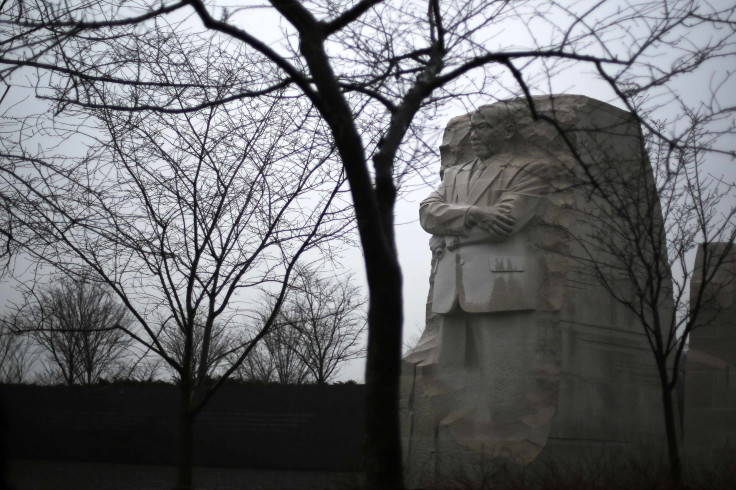Martin Luther King Assassination: 9 Things You May Not Have Known About The Day The Reverend Was Shot

Martin Luther King Jr. was assassinated on April 4, 1968, in Memphis, Tennessee, where he was planning to make a speech about sanitation workers. He was staying at the Lorraine Motel in Room 306. On the evening of April 4, he stepped out on the balcony to speak with colleagues in the parking lot below him before going out to have dinner at a local minister's home. Around 6 p.m. he was shot and killed.
The assassination of Martin Luther King Jr. was a pivotal moment in history -- and one that marked an end and beginning of a legacy. Here are some insightful facts about that day and what happened thereafter courtesy of Syracuse.com, Stanford University and History.com:
1. Memphis minister Samuel “Billy” Kyles and Ralph Abernathy were supposed to have dinner with King when he was shot and killed, and according to Kyles, who stood near him until he died. He is supposedly the last person to spend King’s final hour with him.
2. Those who saw King get shot turned and pointed to a rooming house across the street, where they thought the shot came from. Authorities later found a gun nearby the roominghouse. The FBI linked King’s assassination to James Earl Ray, a man who had escaped a Missouri prison and rented a second-floor room near a bathroom that had a view to the motel King was staying at. Ray later pleaded guilty.
3. President Lyndon B. Johnson ordered a national day of mourning three days after King’s assassination. The 40th Academy Awards ceremony was rescheduled to April 10.
4. Johnson didn't attend King’s funeral. He attended a memorial service for the reverend and made a statement from the White House, but because of the Vietnam War, did not go out in public very often that year.
5. More than 100,000 mourners followed two mules pulling King’s coffin through the streets of Atlanta. His funeral was attended by higher-ups including Jacqueline Kennedy, Hubert Humphrey and Benjamin Mays, the president of King’s alma mater Morehouse College.
6. Robert Kennedy was credited with preventing a riot in Indianapolis, despite the many riots happening elsewhere around the country. He said “Let us dedicate ourselves to what the Greeks wrote so many years ago: to tame the savageness of man and make gentle the life of the world.”
7. Ray later tried to rescind his guilty plea. King’s family supported Ray trying to go to retrial and they often said publicly that he was innocent. But the case was never reopened and he died in prison in 1998.
8. The place King was staying in Memphis, the Lorraine Motel, is now a part of the Memphis National Civil Rights Museum and his room can be viewed for $10.
9. In King’s last sermon, made the day before he died, he said: “We’ve got some difficult days ahead. But it really doesn’t matter with me now, because I’ve been to the mountaintop … And He’s allowed me to go up to the mountain. And I’ve looked over, and I’ve seen the Promised Land. I may not get there with you. But I want you to know tonight that we, as a people, will get to the promised land.”
© Copyright IBTimes 2024. All rights reserved.












